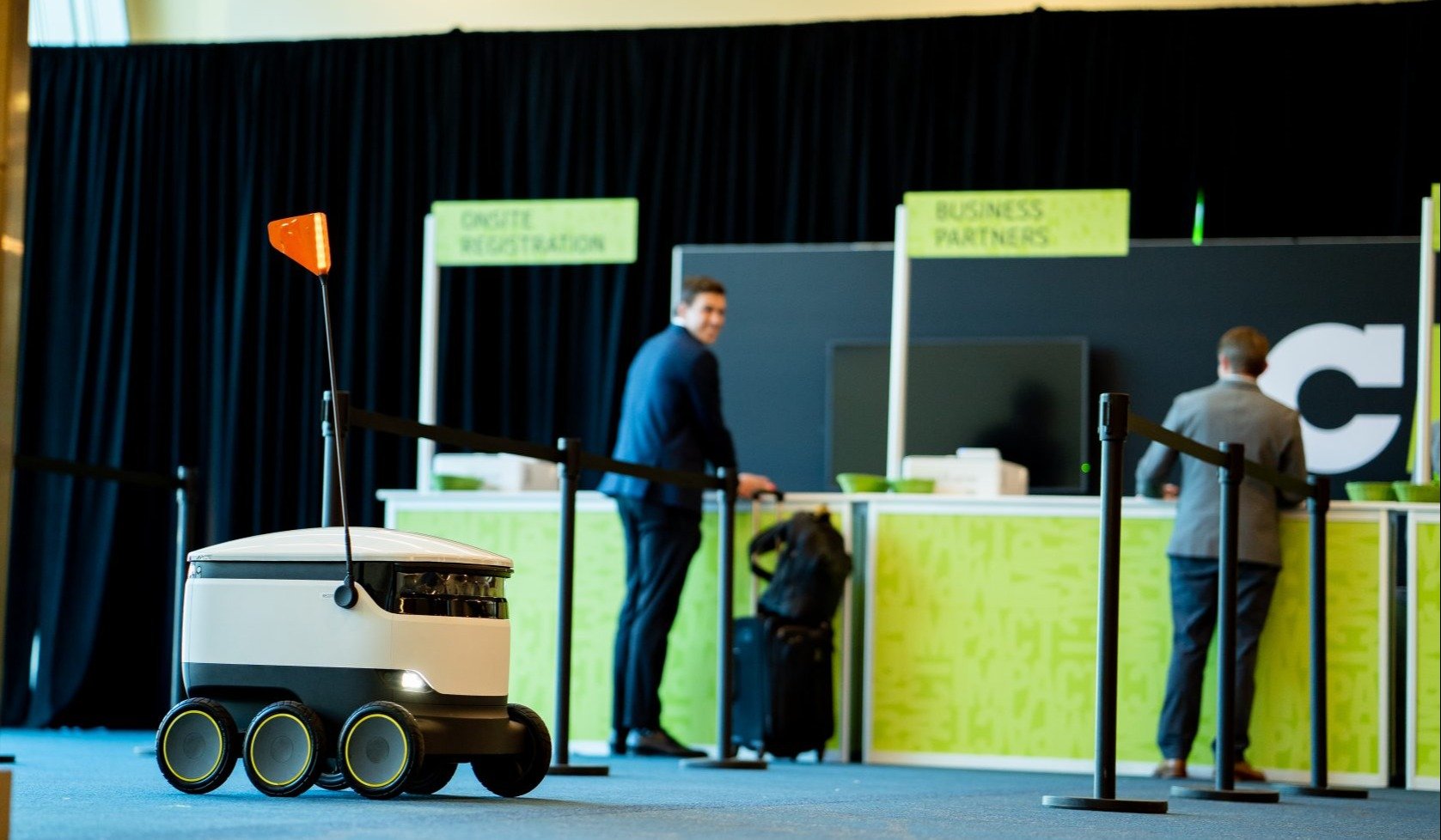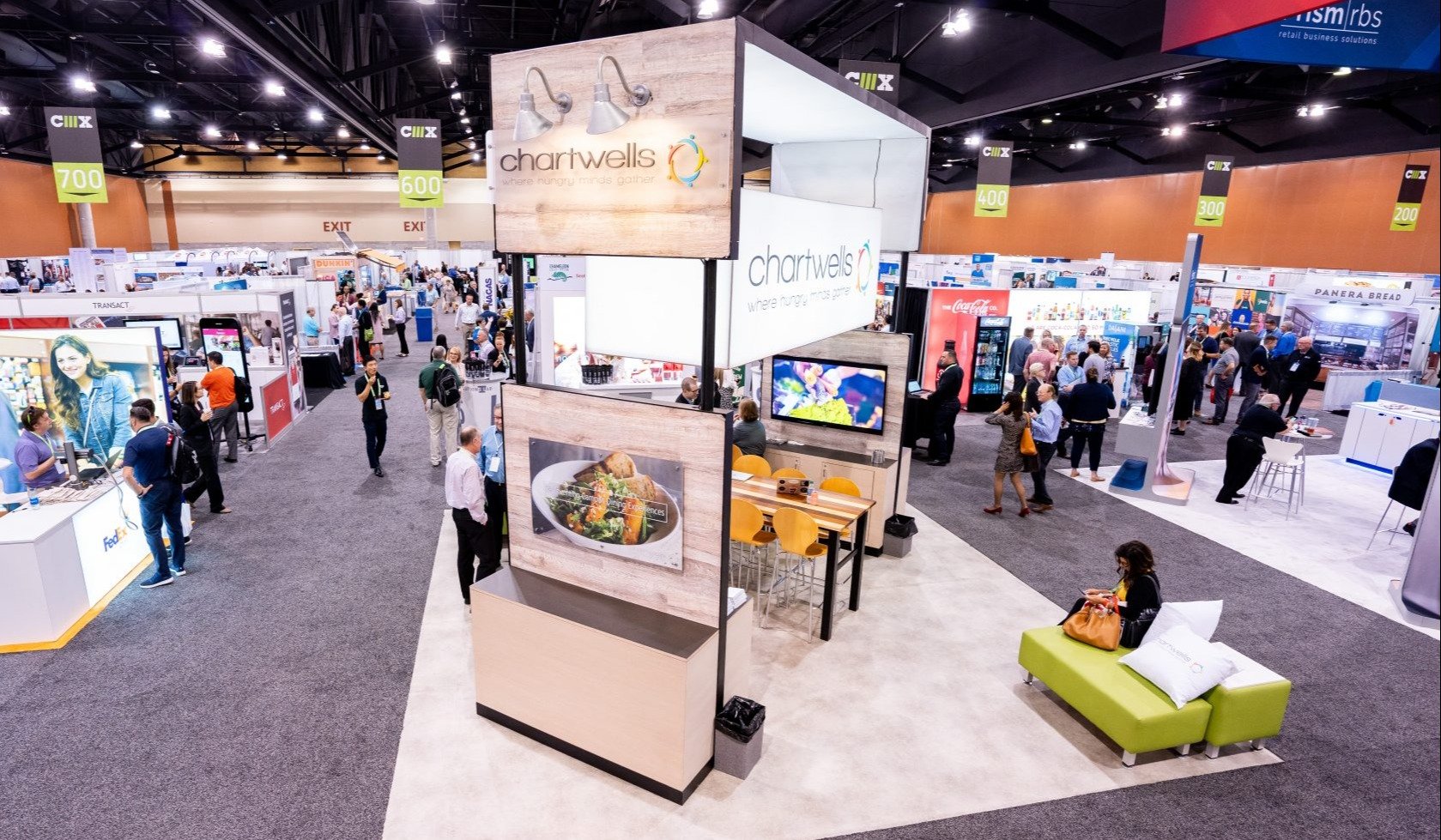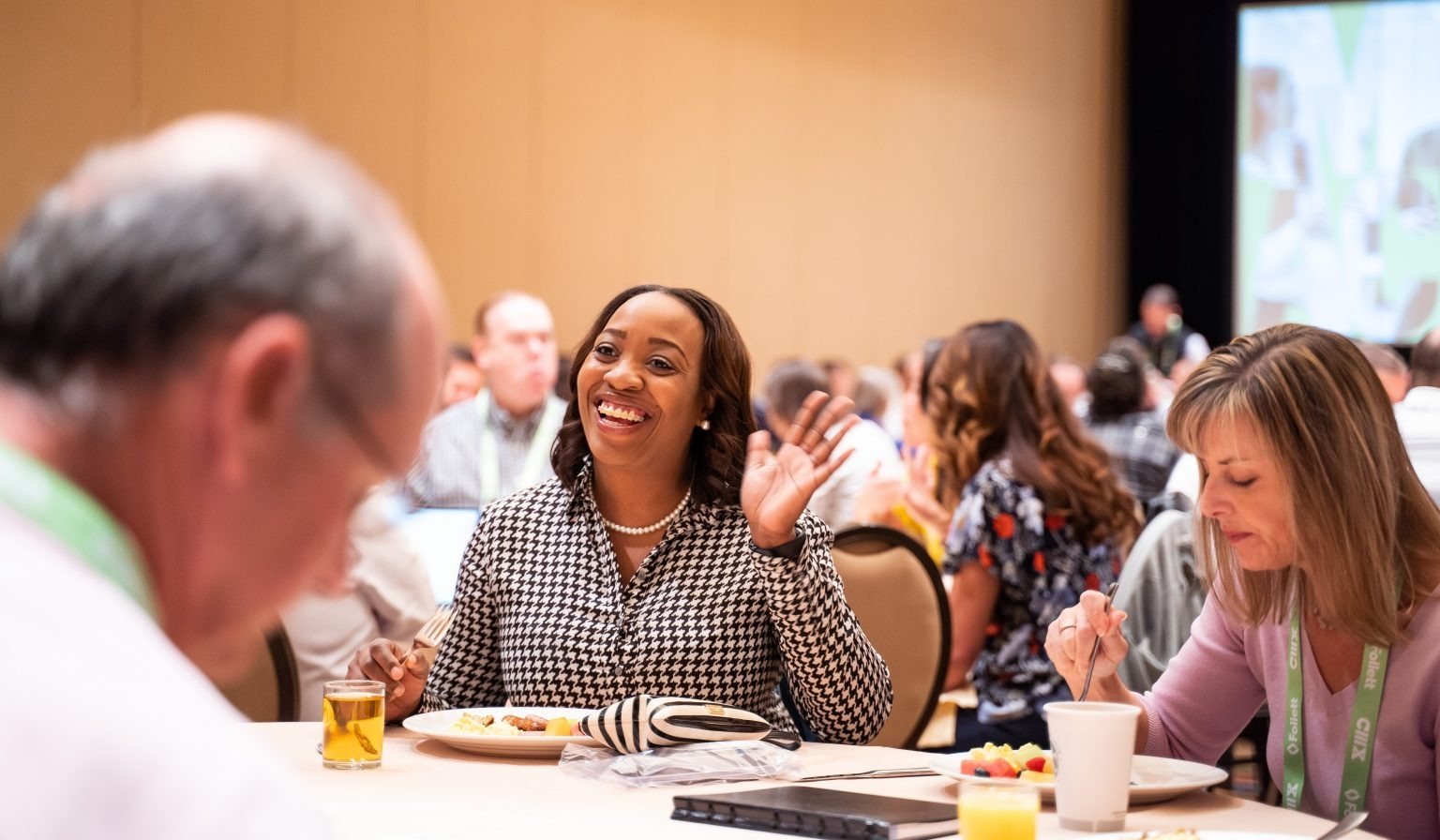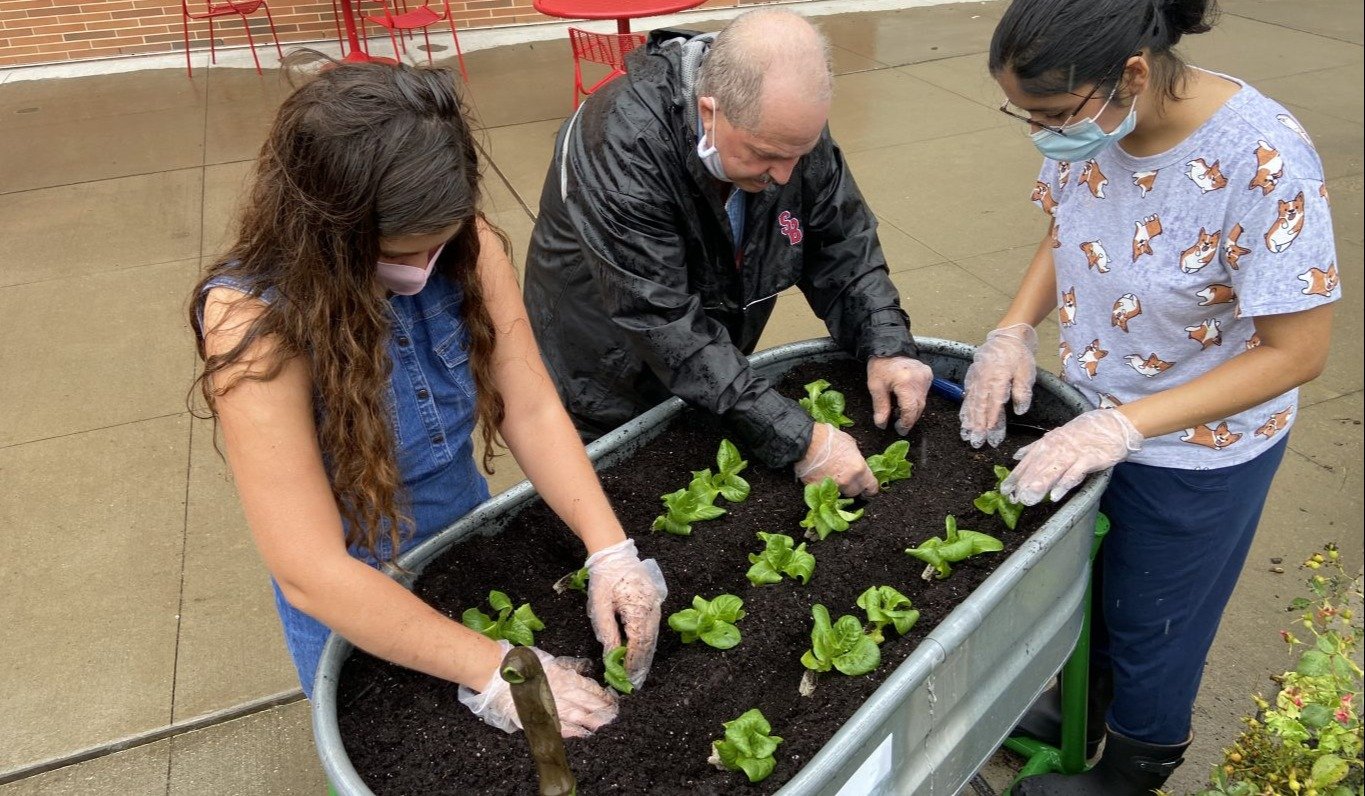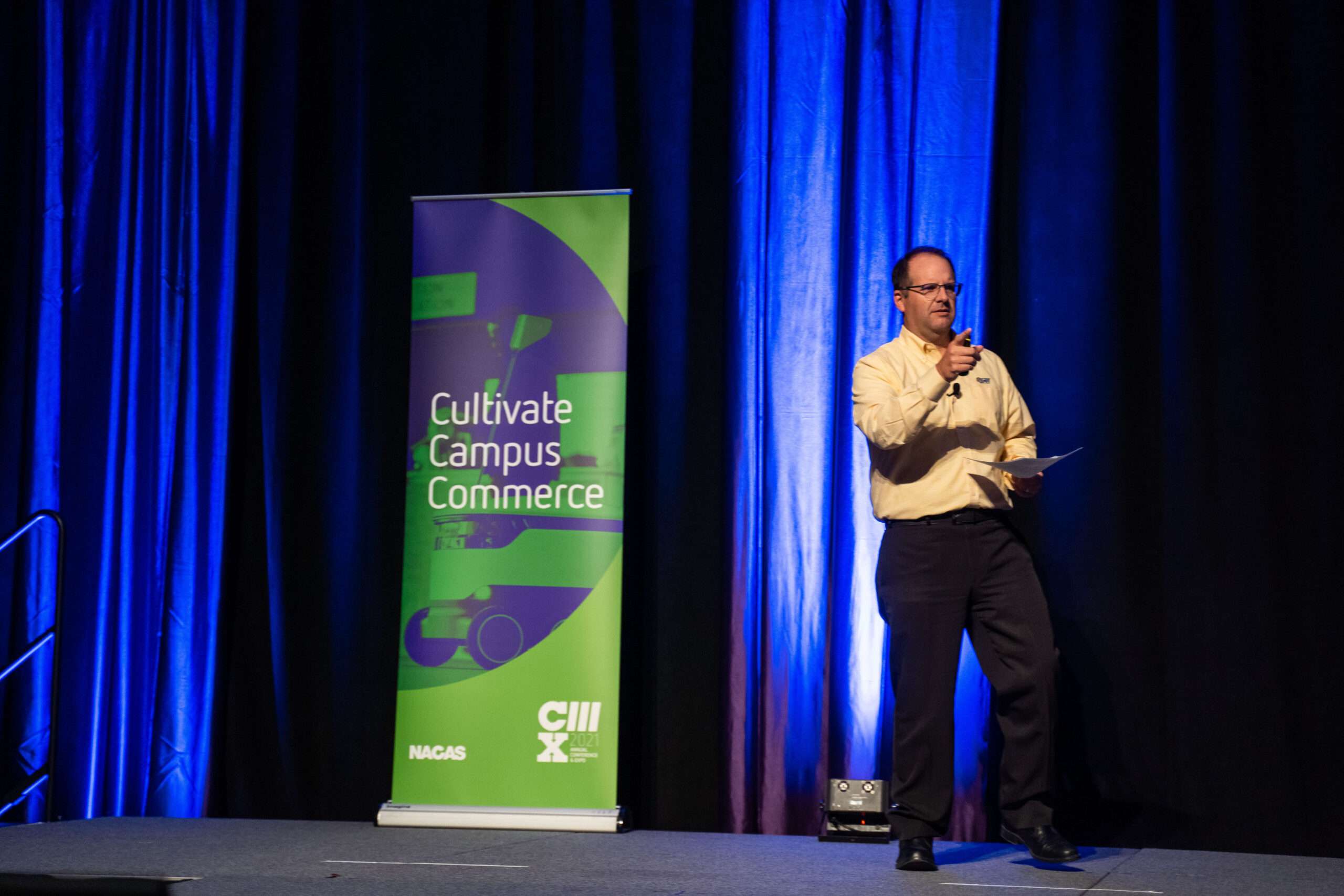
Call for Programs
Exchange innovative solutions that have enriched the campus environment at your institution.
Details & Deadlines
Formats
Ed sessions are 1 hour. We recommend 50 minutes for presentation and 10 minutes for questions.
Important Presenter Information
- All presenters must register for at least one day of the conference (the day you present) and are strongly encouraged to register for the entire event.
- Guest rates do not apply. Session presenters are NOT reimbursed for registrations or expenses to attend the conference
- A screen and LCD projector will be provided at no cost to presenters. Presenters must organize any additional needs through approved vendors and cover costs associated with the additional needs.
- Presenters must provide their own computer
- Presenting Business Partners must have a current NACAS membership AND co-present with a NACAS institutional member
- Presenters must submit a draft presentation prior to the conference that can be downloaded by attendees
- Acceptable file formats are .pdf and PowerPoint
- Presenters must sign the NACAS speaker policy agreement
- Presenters must attend a virtual rehearsal
Sessions will be reviewed on a rolling basis.
What We're Looking For
We are seeking education that provides campus operations with the resources that help students become more engaged in their campus environment, more successful in their college experience, and more likely to stay enrolled in the institution. The services you provide on campus help achieve student success and attain institutional goals. How do your operations support these goals, and what strategies are used to achieve them?
Our selection committee gives preference to sessions that communicate successful business leadership and demonstrate the impact that multiple operations can have on the college campus and the student experience.
Submitted programs are evaluated on how they tie into operations on your campus and how they contribute to the following core competencies:
- Management
- Leadership
- Marketing & Communications
- Student Success
- Innovative Technology and Revenue Generation
- Sustainability
Preference is given to proposals that demonstrate either knowledge in the core competencies or collaboration among multiple operations.
Content Areas - Core Competencies
Innovative Technology: Defined as content that showcases the use of various technology systems, software, or tools that progressively disrupts regular operations in auxiliaries (including but not limited to virtual reality, dashboard systems, renewable energy, etc). These presentations would include information on how the use of innovative technology improved or optimized auxiliary services or created an alternative way of solving operational challenges.
Leadership: Defined as content that addresses the process of social influence in which a person can enlist the aid and support of others in the accomplishment of a goal. These include presentations that promote the professional development of someone who guides, influences, or directs others; motivation, assessment, change management, relationships, and valuing employees and partners.
Management: Defined as content that addresses the functions and efforts of people to accomplish goals and objectives using available resources efficiently and effectively. This also includes presentations that look at the best practices of planning, organizing, staffing, leading, or directing an organization to accomplish its goal. May include human, financial, technological, and natural resources; strategic planning, benchmarking, problem-solving, or performance indicators.
Marketing & Communication: Defined as content that relates to the messages and media used to communicate with our target markets. Content in this area includes promotion, strategy and planning, market research, customer service, and sponsorships. This includes social media, advertising, branding, language, graphic design, packaging, publicity, public relations, sales, and online marketing. Strategies used by an institution or company to reach their market through various types of communication are also included.
Revenue Generation: Defined as content that relates to innovative revenue generation techniques and solutions. Presentations may highlight unique cross-campus and/or public-private partnerships or exemplify an alternative technique to optimize an existing stream of revenue. Presentations could also include examples of marketing or sponsorship efforts that enhanced revenue opportunities or how existing non-revenue generating operations were changed to identify new funding opportunities.
Student Success: Defined as content that refers to and supports the body of educational psychology that theorizes how student employees gain knowledge in post-secondary educational environments. These sessions might include information in the areas of the student development movement, the environment and landscape in which students learn, student involvement, leadership and retention, growth, and personal identity development.
Sustainability: Defined as content that models sustainability practices across operations and activities, encompassing human and ecological health, social justice, secure livelihoods, and a better world for all generations. Sustainability can be measured across an institution’s environmental, social, and economic impacts.
NOTE: Definition provided by our partners at AASHE – The Association for the Advancement of Sustainability in Higher Education.
Content Areas - Operational Areas
Automated Vending: Defined as content related to the sale of goods through automated vending machines. This includes resources needed; coordination and decisions in placement, quantity, and types of machines; federal or state regulation and industry standards related to automated vending services; payment; contract management or self-operation; and inventory (food, beverage, supplies, and other goods).
Bookstores: Defined as content relating to a place of business where books are the main item offered for sale, rent, or buyback. This area includes best practices for technology, operations, point-of-sale systems, and organization. This includes textbook industry changes, current or future trends, procurement, contract management, or entrepreneurship.
Card Services: Defined as content relating to a category of financial services that utilize business and merchant services to accept various card-based systems during transactions using online ordering or point-of-sale systems within auxiliary services. This includes electronic commerce, card programs, transaction processes and solutions, identification, service/access validation and authentication, attendance, demographic reporting, and authentication tools: biometrics, chip, or NFC-based topics.
Commercial & Retail: Defined as content related to the sale of goods and services from individuals or businesses to an end-user in a commercial space beyond textbooks (see Bookstore definition). This also includes supply chain management, retail operations, wholesale, brick and mortar locations, door-to-door, or delivery. Buying and selling goods and services, wholesale buying and selling, financial operations, and other business services related to commercial and retail operations in auxiliary services.
Conference & Event Services: Defined as content sharing innovative trends and operations of conference and/or event planning services for students, staff, faculty, public guests. This may include a-la-carte planning procedures or full-scale, start-to-end event and conference planning processes. Metrics for successful, yet affordable, revenue-generating events. Conference planning content can also include summer conferencing and short-stay programs.
Facilities: Defined as content that supports the permanent, semi-permanent, or temporary commercial or industrial property installed for the performance of functions or activities related to auxiliary services. This also includes athletics, finance and budgeting, audits, lodging, accommodations, bars and restaurants, meeting rooms, and any other core features to facility operations.
Food Services: Defined as content relating to those businesses, institutions, and companies responsible for meal preparation outside of a residence. This includes content related to the operation of restaurants, cafeterias, catering services, foodservice distributors, consumers, and foodservice ware.
Housing: Defined as content related to the act of providing shelter or lodging to students while enrolled at a college or university. Includes houses, apartments, residential colleges, dormitories, residence halls, and other community-based configurations. Also includes summer conferencing programs and short-stay programs.
Mail & Print Services: Defined as content related to the daily operations of mail and printing services for faculty, staff, and students across a college or university. Mailing services could include internal campus functions and the mailing, shipping, and receiving of items from outside and inside the campus community. Printing services include any printing from small-scale student, staff, or faculty needs to large-scale poster size marketing campaigns.
Parking & Transportation: Defined as content that supports the information and operation of public transportation, shuttle services, bus routes, and parking on college campuses. Infrastructure, shipping and transport services, event management, or the business of conveying passengers or goods may be included.
2 min read
RICH STEELE, NAMED CEO OF NACAS, BRINGS 30 YEARS OF STUDENT AUXILIARY SERVICES EXPERTISE TO THE ROLE
Jan 9, 2024 by NACAS
3 min read
NACAS C3X Annual Conference & Expo Unveils 2023 Conference Program
Sep 7, 2023 by NACAS
NACAS Foundation
Through generous support of members and business partners, the NACAS Foundation is able to fund professional development and leadership opportunities of NACAS members as they enhance higher education by utilizing the latest in campus services. Learn More
